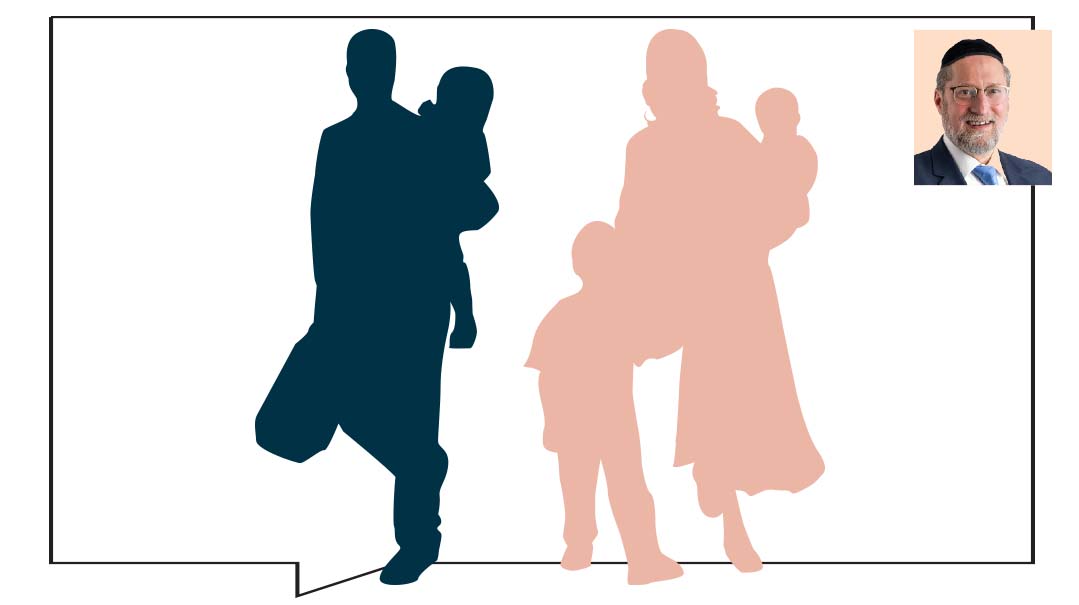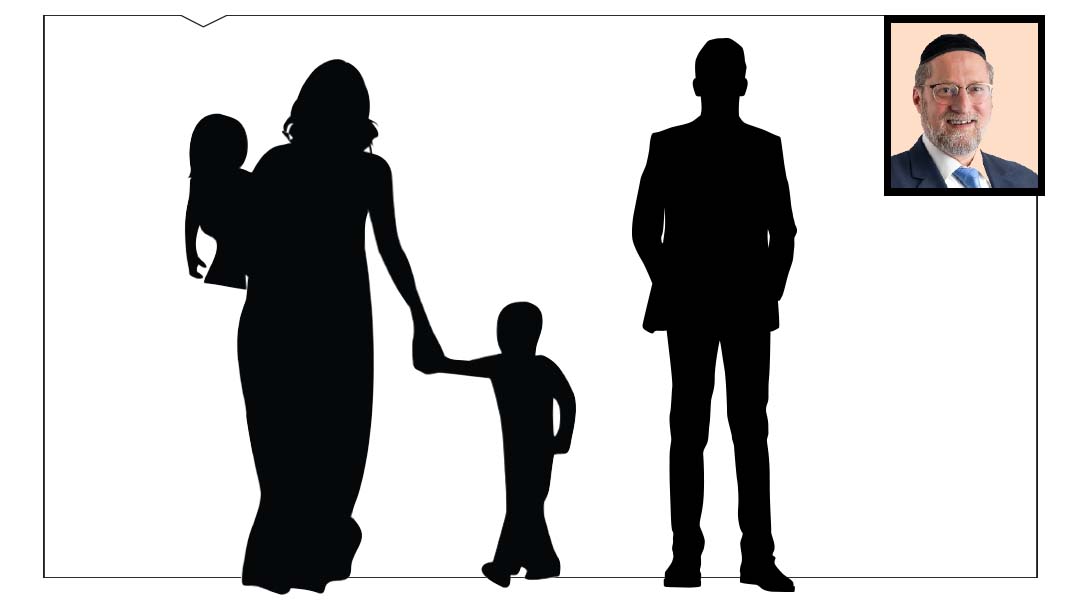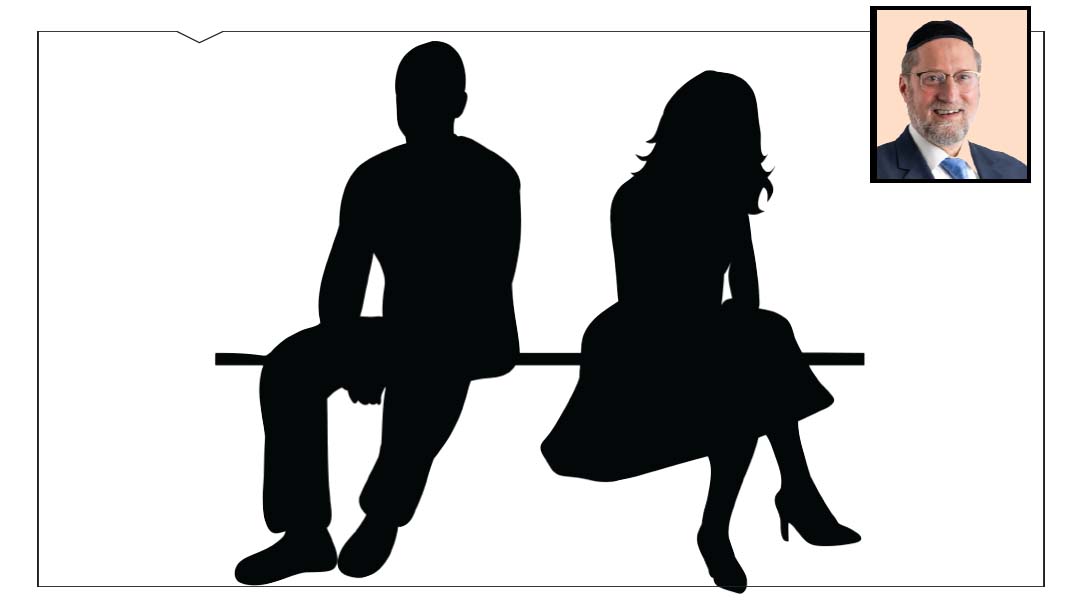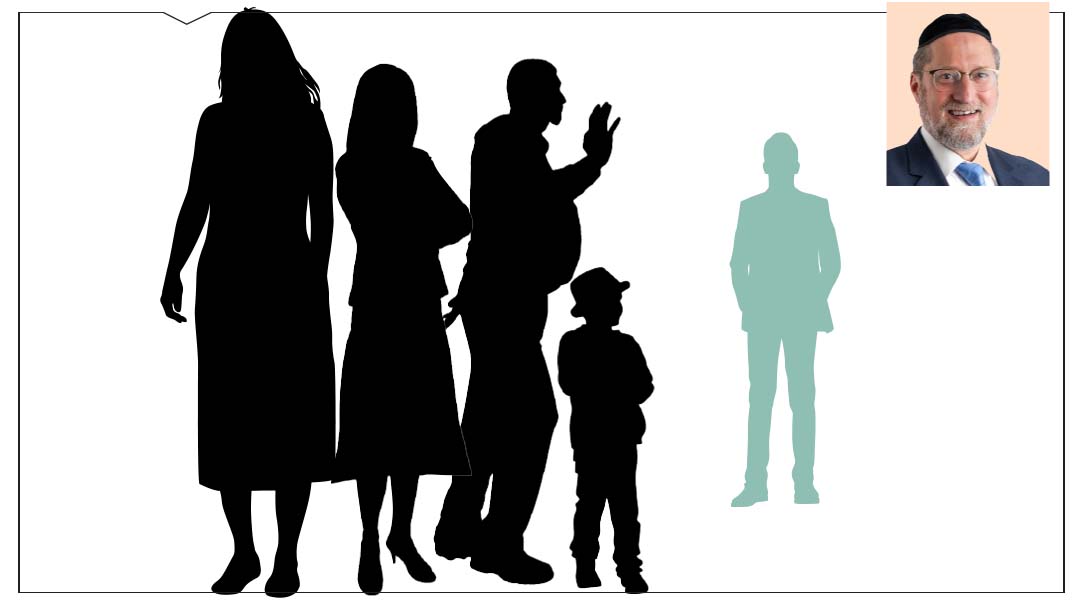Parting Pointers
| January 4, 2022Some of the myths, misconceptions, and mistaken beliefs that often accompany even stable marriages

Written with Zivia Reischer
For the last 16 weeks, Mishpacha has given me the privilege of exploring on these pages some of the most common issues couples struggle with, and of sharing some basic tools and ideas that can lead to happier, stronger, more fulfilling marriages. As this column comes to a close, permit me to put out some of the myths, misconceptions, and mistaken beliefs that often accompany even stable marriages, and the realignment of these beliefs that I’ve found has helped many couples.
Myth
If we both have good middos and are completely aligned in our hashkafos, we’ll surely have a good marriage.
Fact
While it’s true that good middos are essential, unless a couple maintains a strong bond of love, they will either bicker or drift apart until they deeply resent each other — at which point all the fine middos in the world won’t help them live in peace and harmony. Each one will eventually feel victimized and misunderstood, and not even someone with “amazing middos” can put up with that feeling for the long term without the household suffering.
Myth
If we devote time toward our marriage, it will take time away from our children.
Fact
The single greatest investment you can make to ensure your children’s well-adjusted development is a happy, well-functioning home. While it’s true that children need our undivided attention, a secure, stable home is requirement number one. If you don’t give an investment of time toward your marriage, including going out regularly, the ones who will suffer the most will be your children.
Myth
If my spouse really loved me, s/he would change, and our marriage would be so much better.
Fact
It seems that every couple has it — the “one thing” about their spouse that if only it would change, life would be so much better. (The “one thing” is often something that is your strength and your spouse’s weakness.) This is a formula for misery. You’re upset because your spouse isn’t good enough, and your spouse is upset because you think s/he isn’t good enough. This is a surefire recipe for the relationship to suffer.
It’s not your job to change your spouse. Your spouse is the way s/he is because that’s the way Hashem made him. If you really care about your marriage (and if you’re married, you probably do), focus on the one thing you actually have a shot at changing: yourself. And it’s quite likely that when you do that instead, and stop dwelling on what your spouse does wrong, your marriage will greatly improve.
Myth
If we were really meant for each other, we would see things the same way. But we disagree about so many things, so our marriage is probably hopeless.
Fact
Each human being is a unique blend of temperament, inclinations, and personality. As my face is different than your face, my mind is different than your mind. In addition, each of us has had different upbringings and experiences. But even greater are the innate differences between men and women. Men and women are essential opposites, and it’s highly unlikely for two such different individuals not to have many, many things they disagree on. The success of your marriage isn’t based on “not having differences.” It’s based on how you handle the differences.
Myth
I am responsible for the ruchniyus level of my spouse.
Fact
When you leave This World, they will ask you how much of your essential self you actually became. They won’t ask you how much you changed your neighbors, your friends, your children, or your spouse.
You are responsible for your spiritual level. You are not your spouse’s rebbe, mentor, judge or mother. Focusing on your spouse’s ruchniyus only makes them irritable and uninterested in whatever change you envision they need.
Myth
If we fight from time to time that means we don’t have, and can’t have, a good marriage.
Fact
Even in very good marriages, fighting happens on occasion. There are just too many issues that couples are enmeshed in, and too much vulnerability on both sides, for there not to be occasional misunderstandings and hurt feelings. Far more significant for the long-term health of the marriage is how well you are able to repair the rift and move on.
Myth
If a husband and wife truly love each other, they will weather any storm, and their marriage will flourish.
Fact
It is true that love is a key ingredient to the success of marriage. But love alone is never enough. There are three pillars to a successful marriage: commitment, love, and learning to live together.
The first pillar, commitment, comes from the recognition that Hashem chose you for each other, and He doesn’t make mistakes. As you go through the various stages of life, there will be many things that threaten to pull you apart. It’s only the firm belief that Hashem Himself planned for the two of you to grow together that creates the commitment to make your marriage work.
The second pillar, love, is the glue that holds the marriage together on a day-to-day basis. Without a firm bond of affection and connection, marriage just won’t work. But building and maintaining love doesn’t just happen. It requires deliberate focus and attention, and it needs specific behaviors, attitudes, and perspectives.
It’s the third pillar, however, that gives many couples the most trouble: They profess to love each other and are firmly committed to their marriage, but they can’t figure out how to live together. This is the most demanding aspect of marriage and also the area of the most growth.
Together Forever
When discussing the Torah’s concept of marriage, I can think of no better illustration than the words I heard my rebbi, Rav Henoch Leibowitz ztz"l, say at the funeral of his wife. The Rosh Yeshivah was seven years older than the Rebbetzin, and for much of his life he wasn’t well. It was unspoken but expected that the Rosh Yeshivah would pass on before his wife, but in fact that’s not what happened.
The Rebbetzin took ill and passed away a short time later. At the funeral, the Rosh Yeshivah got up to speak. He began by saying, “Everything we did, we did together. We built the yeshivah together. We worried about the talmidim together. Everything we did, we did together. We went to Eretz Yisrael together. When I was sick, she worried about my health more than I did. I didn’t have to worry about my diet or my medicine, she did everything for me. Everything we did, we did together…” He must have repeated that expression more than a dozen times.
Then, the Rosh Yeshivah was silent. After a long time, he said, “I said a hesped for my father. I said a hesped for my mother. But I can’t say a hesped for my wife. If I say a hesped for my wife, it is as if I were saying a hesped about myself. I can’t do it.” And he sat down.
With those words, he defined a Torah marriage. One unit. Together. Not an I and a you. Not my needs and your needs. One unit joined together forever.
That is the goal. Getting there is the issue. A good marriage takes a lot of work. A great marriage takes even more. Because while the match was made in Heaven, it’s up to you to make the marriage on earth.
(Originally featured in Mishpacha, Issue 893)
Oops! We could not locate your form.







